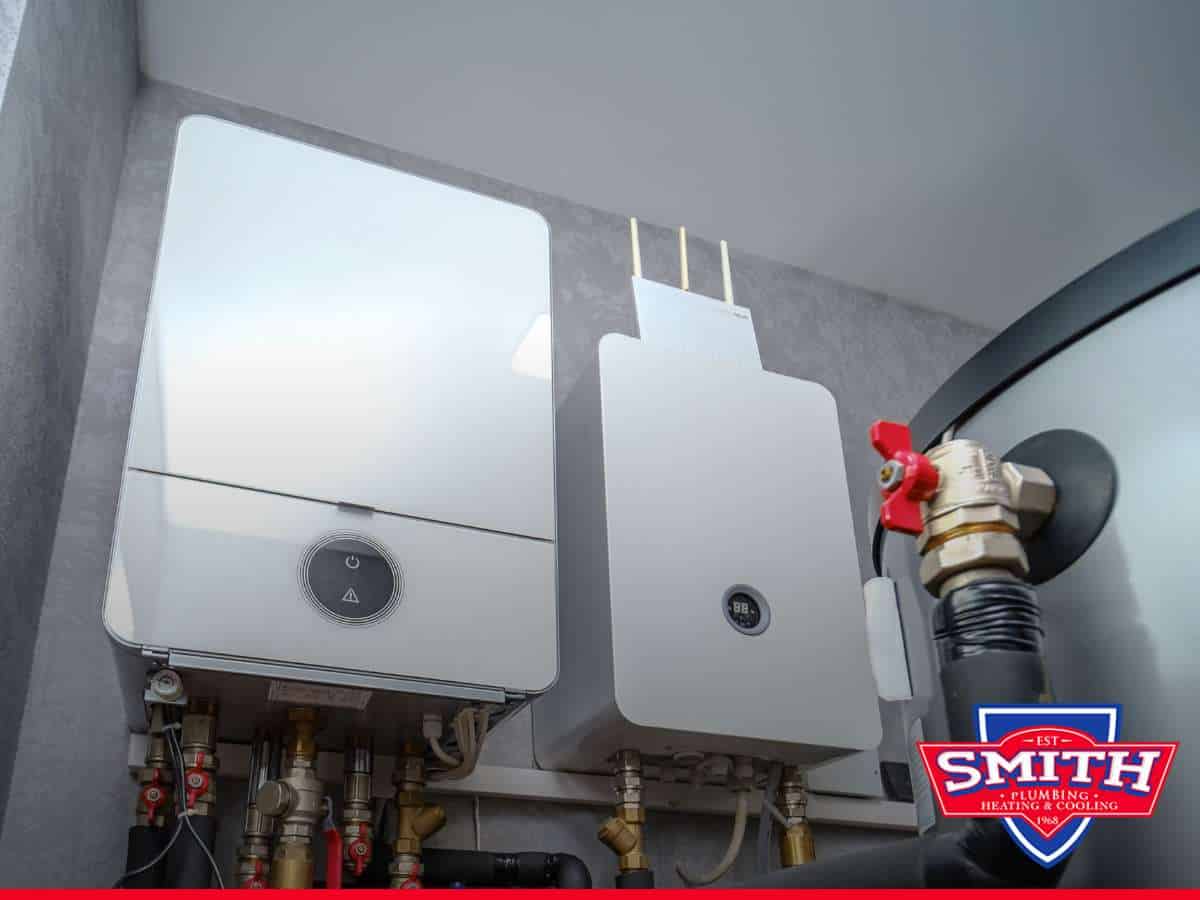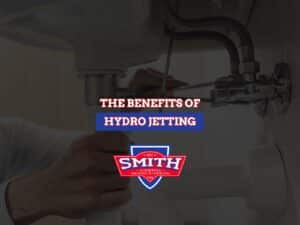Understand Why a Tankless System Is The Smartest Upgrade For Your Home
Are you tired of running out of hot water during your showers or waiting for the tank to refill? Tankless water heaters provide an innovative solution that ensures a continuous supply of hot water while improving energy efficiency. Unlike traditional systems, these modern units eliminate standby energy loss and reduce the strain on your home's plumbing, making them a smart and long-lasting investment.
If you’re considering an upgrade, this guide will help you understand why a tankless system might be the best choice for your home.

How Do Tankless Water Heaters Work?
Unlike traditional water heaters that store and heat a large amount of water in a tank, tankless models heat water on demand. When you turn on the hot water tap, cold water flows through a heating element (either gas or electric) which quickly raises its temperature before delivering it to your faucet or shower. This process eliminates the need for a bulky storage tank and ensures you never run out of hot water.
The Step-by-Step Process of a Tankless Water Heater
Understanding how a tankless water heater operates can help you see why it's a more efficient and reliable choice for your home. Unlike traditional systems that store and constantly reheat water, tankless models work on demand, providing hot water exactly when you need it.
This advanced technology not only improves energy efficiency but also reduces the likelihood of sudden breakdowns. In rare cases, if issues arise, emergency plumbers can quickly diagnose and resolve them.
Read through the following steps to better understand the seamless process behind tankless water heaters:
- Water Flow Activation: When a hot water tap is turned on, the system detects the flow of water and activates the heating process.
- Heating Element Engagement: Cold water passes through a powerful heat exchanger, which is either gas-fired or electric, depending on the unit type.
- Rapid Water Heating: The heat exchanger quickly warms the water to the desired temperature without the need for preheated storage.
- Immediate Hot Water Delivery: The heated water is then sent directly to your faucet, shower, or appliance without any waiting time.
- Automatic Shut-Off: When the tap is turned off, the unit stops heating, conserving energy and preventing unnecessary operation.
Types of Tankless Water Heaters
Tankless water heaters come in different varieties based on their power source and installation method:
- Gas-Powered Tankless Water Heaters: Use natural gas or propane to heat water quickly. Ideal for homes with high water demand.
- Electric Tankless Water Heaters: Use electricity to heat water efficiently. Best for smaller households or areas where gas is unavailable.
- Whole-House vs. Point-of-Use Units: Whole-house systems provide hot water for the entire home, while point-of-use models are installed near specific fixtures for instant heating.
Thanks to their efficient operation and advanced technology, tankless water heaters stand out as a better option compared to traditional models. If you’re unsure which type is best for your home, plumbers can provide valuable advice on choosing the right system to suit your needs.
The Key Benefits of Going Tankless
Switching to a tankless water heater comes with numerous advantages. Let’s take a closer look at the top benefits:
1. Unlimited Hot Water, Anytime
One of the most significant advantages of a tankless water heater is the ability to provide hot water continuously. Unlike traditional models that store and heat a limited amount of water, tankless units work on demand. This means that no matter how many showers, appliances, or faucets are in use, you won’t experience the frustration of running out of hot water. This is especially useful for large households where multiple people need hot water at the same time.
However, selecting the right size unit is crucial to ensure it meets your household’s needs. A unit that is too small may struggle to keep up with demand, while an oversized unit could lead to unnecessary energy use. Consulting with plumbing contractors can help determine the best system for your home, ensuring optimal performance and efficiency.
2. Energy Efficiency & Lower Utility Bills
Tankless water heaters are designed for maximum efficiency, as they only heat water when needed. In contrast, traditional storage tanks constantly heat and reheat water, leading to standby energy loss. By eliminating this unnecessary heating cycle, tankless models can reduce energy consumption by up to 30%, resulting in noticeable savings on utility bills over time.
Many modern tankless systems also feature self-modulating technology, which adjusts the energy output based on demand. This means they only use as much power as necessary to heat the required amount of water, further enhancing their efficiency. Choosing an energy-efficient plumbing system like this can make a significant difference in both cost savings and overall sustainability.
3. A Longer Lifespan with Fewer Repairs
Compared to traditional water heaters, which typically last around 10 to 15 years, tankless models have a much longer lifespan. Often up to 20 years or more with proper maintenance! Because they don’t store water, there is a lower risk of tank corrosion and leaks, which are common issues in conventional systems. This extended durability makes them a smart long-term investment for homeowners.
Additionally, regular maintenance can further prolong the life of a tankless unit. Flushing the system periodically to remove mineral buildup and ensuring the heating elements are functioning properly can prevent costly plumbing repairs in the future. Investing in a high-quality unit and scheduling routine check-ups with professional plumbers can maximize the benefits of your system.
4. Space-Saving Design
Traditional water heaters take up a considerable amount of space due to their bulky storage tanks. This can be especially problematic in smaller homes, apartments, or properties with limited utility space. Tankless water heaters, on the other hand, are compact and can be mounted on a wall, freeing up valuable square footage. Some models can even be installed outdoors, providing even more flexibility in placement.
This space-saving feature is particularly advantageous during home renovations or remodels, where maximizing usable space is a priority. Homeowners looking to optimize their layouts can benefit from the sleek, modern design of a tankless system while still enjoying reliable hot water access. Consulting with plumbing services can ensure proper installation and help you find the best placement for your unit.
5. Eco-Friendly & Sustainable
Tankless water heaters are not only energy-efficient but also environmentally friendly. Since they use less energy than traditional models, they help reduce overall household carbon emissions. This contributes to a greener home and a lower environmental impact. Many modern tankless units also qualify for energy efficiency rebates, making them a cost-effective and sustainable choice.
Beyond energy savings, their extended lifespan means fewer units end up in landfills, reducing waste. With proper maintenance, a tankless water heater can last twice as long as a traditional model, making it a more sustainable option. A trusted plumbing company can guide you through the installation, and maintenance process, ensuring that your tankless system works efficiently.
Is a Tankless Water Heater Right For Your Home?
While the benefits of tankless systems are clear, they may not be the perfect fit for every household. Here are some factors to consider before making the switch:
- Initial Cost: Tankless water heaters generally have a higher upfront cost compared to traditional models. However, long-term energy savings can offset this investment.
- Installation Requirements: Depending on your home’s current setup, you may need additional modifications to accommodate a tankless system. A professional assessment from experienced plumbing contractors can help determine the best installation approach.
- Flow Rate Considerations: Larger households with high hot water usage should choose a unit with an appropriate flow rate to ensure consistent performance.
Professional Installation & Maintenance
To maximize the benefits of your tankless water heater, professional installation is essential. Proper sizing, correct venting, and adherence to local codes all play a role in the system’s efficiency and longevity.
Regular servicing, such as flushing the unit to remove mineral buildup, helps maintain optimal performance. Relying on trusted plumbing services ensures your system runs smoothly for years to come.
Conclusion
Investing in a tankless water heater is a smart choice for homeowners looking for reliability, energy savings, and long-term value. Whether you're upgrading an old system or installing one for the first time, the team at Smith Plumbing is here to help.
Our experts specialize in professional installation, maintenance, and repair services to ensure your home always has hot water when you need it. Whether you're upgrading your system or need a quick repair, our professional plumbers in Mesa are here to help. Contact us today to schedule a consultation and experience the benefits of going tankless!


